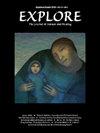Retrospective case control study of microcurrent therapy in autism spectrum disorder: Behavioral outcomes and dose-response analysis
IF 2.2
4区 医学
Q3 INTEGRATIVE & COMPLEMENTARY MEDICINE
引用次数: 0
Abstract
Microcurrent therapy (MCT) is an emerging treatment modality in medicine, but its potential effects on autism spectrum disorder (ASD) remain underexplored. This study aimed to assess the effects of MCT on ASD symptoms to inform future clinical trials. We conducted a retrospective case-control study involving 21 pediatric patients and one adult with ASD who underwent MCT using a standardized protocol. The Autism Treatment Evaluation Checklist (ATEC) was administered before and after treatment to evaluate behavioral changes. A paired t-test compared pre- and post-treatment ATEC scores, while an unpaired t-test compared the MCT-treated group with age-matched historical controls reported in the literature. Linear regression analysis assessed the dose-response relationship. MCT was well tolerated, with no serious side effects. The 22 patients completed an average of 32 sessions. Paired t-test analysis revealed a statistically significant reduction in ATEC scores, with an average decrease of 28.6 points (42.8 %) (p = 0.007, 95 % CI: 8.3–48.9). In comparison to historical controls, the MCT-treated group showed greater improvement (26.4 points, 42.6 %) versus controls (7.9 points, 13.2 %) (p = 0.0001, 95 % CI: 19.9–47.5). Linear regression demonstrated a strong correlation between the number of MCT sessions and the magnitude of improvement (R = 0.693, F = 18.5, p = 0.0003, 95 % CI). These findings suggest that MCT may have a therapeutic effect on ASD, as evidenced by significant pre- and post-treatment improvements compared to historical controls and a dose-dependent response. Further research through larger clinical trials is warranted.
微电流治疗自闭症谱系障碍的回顾性病例对照研究:行为结果和剂量反应分析
微电流治疗(MCT)是一种新兴的医学治疗方式,但其对自闭症谱系障碍(ASD)的潜在影响尚未得到充分的探讨。本研究旨在评估MCT对ASD症状的影响,为未来的临床试验提供信息。我们进行了一项回顾性病例对照研究,涉及21名儿童患者和1名ASD成人患者,他们采用标准化方案接受了MCT。在治疗前后使用自闭症治疗评估表(ATEC)来评估行为改变。配对t检验比较治疗前和治疗后的ATEC评分,而非配对t检验比较mct治疗组与文献中报道的年龄匹配的历史对照组。线性回归分析评价了剂量-反应关系。MCT耐受性良好,没有严重的副作用。这22名患者平均完成了32次治疗。配对t检验分析显示,ATEC评分下降有统计学意义,平均下降28.6分(42.8%)(p = 0.007, 95% CI: 8.3-48.9)。与历史对照组相比,mct治疗组表现出更大的改善(26.4分,42.6%),而对照组(7.9分,13.2%)(p = 0.0001, 95% CI: 19.9-47.5)。线性回归显示MCT次数与改善程度之间有很强的相关性(R = 0.693, F = 18.5, p = 0.0003, 95% CI)。这些发现表明MCT可能对ASD有治疗作用,与历史对照相比,治疗前后的显著改善和剂量依赖性反应证明了这一点。有必要通过更大规模的临床试验进行进一步的研究。
本文章由计算机程序翻译,如有差异,请以英文原文为准。
求助全文
约1分钟内获得全文
求助全文
来源期刊

Explore-The Journal of Science and Healing
医学-全科医学与补充医学
CiteScore
3.00
自引率
8.30%
发文量
179
审稿时长
25 days
期刊介绍:
EXPLORE: The Journal of Science & Healing addresses the scientific principles behind, and applications of, evidence-based healing practices from a wide variety of sources, including conventional, alternative, and cross-cultural medicine. It is an interdisciplinary journal that explores the healing arts, consciousness, spirituality, eco-environmental issues, and basic science as all these fields relate to health.
 求助内容:
求助内容: 应助结果提醒方式:
应助结果提醒方式:


